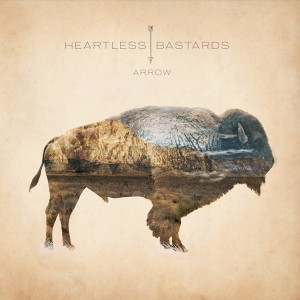I. Books
 Slow, here. I finished Didion’s Blue Nights this morning, which was a breeze to read through. It’s too soon for me to articulate how or why, but it seemed in this book that her mantric style and the brevity of the chapters did something to the grief running throughout that’s different from what happened with grief in Year of Magical Thinking. Also: way more designer dresses and name-dropped Hollywood types. Didion articulates her resistance to the claim that her daughter Quintana lived a life of privilege:
Slow, here. I finished Didion’s Blue Nights this morning, which was a breeze to read through. It’s too soon for me to articulate how or why, but it seemed in this book that her mantric style and the brevity of the chapters did something to the grief running throughout that’s different from what happened with grief in Year of Magical Thinking. Also: way more designer dresses and name-dropped Hollywood types. Didion articulates her resistance to the claim that her daughter Quintana lived a life of privilege:
“Ordinary” childhood in Los Angeles very often involve someone speaking Spanish, but I will not make that argument.
Nor will I even argue that she had an “ordinary” childhood, although I remain unsure about exactly who does.
“Privilege” is something else.
“Privilege” is a judgment.
“Privilege” is an opinion.
“Privilege” is an accusation.
“Privilege” remains an area to which —when I think of what she endured, when I consider what came later—I will not easily cop.
It’s a smart passage, falling right in the middle of the book, and maybe it says something about me and not the book itself, but I couldn’t get past the flights to Europe, or the self-identification with Sofia Loren, or the Manhattan apartment with 13 telephones, to get to the pain of losing a child.
Also, Hollinghurst’s The Stranger’s Child was a masterpiece of realism, in terms of the way he renders his scenes (see here), but in its skipping through decades each chapter (the book spans just about 100 years), my engagement to the narrative ran counter to what such engaging passages seemed to want from me. It’s a novel with an absent central figure—a ghost, really. I will say that by the penultimate chapter it’s rather stunning how much characters from the initial chapter have grown and changed. It’s like having lived a lifetime with them.
II. Music
Maybe you recall that to have new CDs to listen to in my car. CDs! In my car! I’ve got a 10-disc changer!
 I was tardy for February, so my Feb/Mar purchases were the “new” Radiohead record—the, at least, first two or three tracks of which sound like an Eno-produced Talking Heads record, except without the fun Afro-Caribbean rhythms and dynamic vocals (oh, and choruses)—and the Heartless Bastards’ Arrow. I haven’t listened to the latter yet, but the brief preview I did at Oz Music sounded good. They’ve got a female vocalist, which normally isn’t my cup of tea (sorry, Sarah McLachlan), but sometimes Erika Wennerstrom (a Larsson villain if there ever was one) sounds inexplicably like Marc Bolan, so it’s an album I think I can get on the side of.
I was tardy for February, so my Feb/Mar purchases were the “new” Radiohead record—the, at least, first two or three tracks of which sound like an Eno-produced Talking Heads record, except without the fun Afro-Caribbean rhythms and dynamic vocals (oh, and choruses)—and the Heartless Bastards’ Arrow. I haven’t listened to the latter yet, but the brief preview I did at Oz Music sounded good. They’ve got a female vocalist, which normally isn’t my cup of tea (sorry, Sarah McLachlan), but sometimes Erika Wennerstrom (a Larsson villain if there ever was one) sounds inexplicably like Marc Bolan, so it’s an album I think I can get on the side of.
January’s purchase was Wild Flag, which sounds, naturally, like a new Sleater-Kinney record, and so I have no complaints.
One quick word about December’s purchases. Fitz and the Tantrums is, yes, neo-soul, but it’s not a sound sustainable for 10 tracks on an LP. And not that I know hot to produce a hit song, but if you’ve got the hottest horn/drums/organ riff on your record opening track 4, it seems to me a bad idea to follow this riff up with a verse that’s just vocals, bass, and is that a glockenspiel? You’ve given me only 8 bars of awesomeness, Fitz, I don’t need a rest.
And finally, here’s a lyric from “All the Shine”, track 4 on Childish Gambino’s Camp:
Is there room in the game for a lame* who rhymes?
Who wears short-shorts and makes jokes sometimes?
My nigga like, “I’d get you MTV if I could, man
But Pitchfork only like rappers who crazy or hood, man”
And here’s a quote from Pitchfork’s review of said record:
Glover’s exaggerated, cartoonish flow and overblown pop-rap production are enough to make Camp one of the most uniquely unlikable rap records of this year (and most others). What’s worse is how he uses heavy topics like race, masculinity, relationships, street cred, and “real hip-hop” as props to construct a false outsider persona.
Pitchfork gave it a 1.6 out of 10.0, which in its specificity becomes—rather magically—completely meaningless. I imagine reviewer Ian Cohen has any number of defenses on why Camp could never attain a 1.7, and I imagine each of them is hilarious.
Look: all he seems to be asking is to be taken seriously, which as a standup comic and sitcom actor doing the very un-comic/-actor thing of rapping seems to me a reasonable request. Sure, Camp wears its Kanye influences too much on its sleeve, but it’s also a very nice record to have in your car’s 10-CD changer. You don’t have to skip any tracks! (Except the last one.) And that, my friends, is the level of music criticism you can expect from davemadden.org in the future.
* These lyrics were found online, but in hearing them in my car I originally thought he said, “an Elaine who rhymes”, referring to his ensemble-cast status. I still hope this is what he says.
III. Movies
 I think the trouble with Our Idiot Brother is that he had three sisters. Yes, 3 is a narratively convenient quantity, but for the movie’s title to prove itself true he needs to “ruin the lives” of each of these women, and the women have to be different enough in lifestyle and personality that each ruination reads as distinct from the others. And because it’s ostensibly a comedy (I wanted to laugh a lot more than I did, and why did they do everything possible to make Elizabeth Banks look precisely like Parker Posey?) each sister in her own way needs to forgive her idiot brother in the end.
I think the trouble with Our Idiot Brother is that he had three sisters. Yes, 3 is a narratively convenient quantity, but for the movie’s title to prove itself true he needs to “ruin the lives” of each of these women, and the women have to be different enough in lifestyle and personality that each ruination reads as distinct from the others. And because it’s ostensibly a comedy (I wanted to laugh a lot more than I did, and why did they do everything possible to make Elizabeth Banks look precisely like Parker Posey?) each sister in her own way needs to forgive her idiot brother in the end.
So: two sisters, or make it a drama where in the end everything doesn’t work out for everyone at just about the same time.
Next!